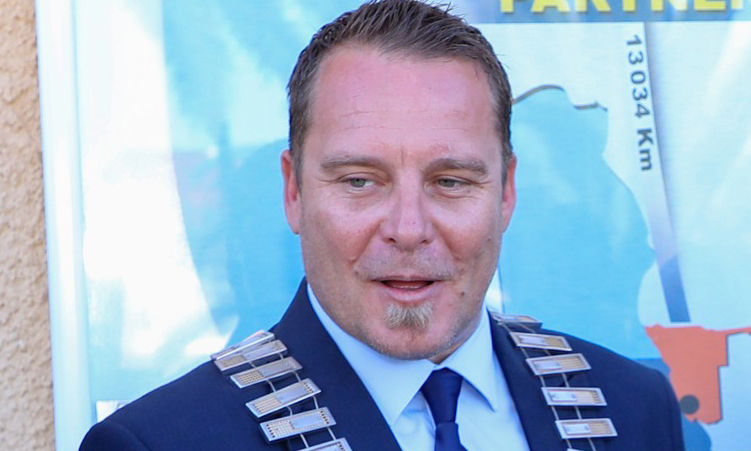The promise of progress from green hydrogen is met with a critical challenge: balancing development with sustainability, particularly regarding the town’s precious water resources.
The production of green hydrogen is water-intensive, requiring approximately nine litres of water for every kilogram produced.
According to Lüderitz mayor Phil Balhao, the town’s council acknowledges the potential strain on Lüderitz’ limited water supply, but assures the community that all water will come from desalination.
The green hydrogen project’s reliance on desalinated water brings relief, yet it raises questions about the broader implications of increased water demand on other sectors like agriculture, tourism and domestic use.
“The green hydrogen industry is indeed water-intensive … however all the water for this project will be desalinated water,” Balhao says.
“We are currently assessing the most sustainable sources for the town’s water, including partnerships with NamWater for a required desalination plant and the land arrangement is currently being processed in accordance with the Local Authorities Act.”
Excess water from the Hyphen project will be made available to the town, which could promote other industries like agriculture.
“The industry is actively engaging in water management strategies, including efficient water use, recycling measures and desalination,” Balhao says.
Engaging with local communities, businesses and environmental groups is a priority for the industry.
“The potential trade-offs between economic development and water security are significant.
While the green hydrogen industry promises economic growth and job creation, it is imperative that we prioritise water security to ensure that our community thrives sustainably”.
Balhao says decision-making will always consider the long-term health of water resources alongside economic benefits and environmental impacts.
Hyphen Hydrogen Energy chief executive Marco Raffinetti echoes the sentiments of Balhao.
“Hyphen will construct its own seawater reverse osmosis (SWRO) water desalination plant, powered with renewable energy”.
According to Raffinetti, “to meet construction water requirements, Hyphen proposes to make use of temporary desalination facilities to meet all construction water demands, including potable supply for the estimated 15 000 construction workers”.
“Hyphen is required to develop its own supporting infrastructure, meaning that Hyphen will not place additional demand on the existing Lüderitz water supply or detract from other sectors or communities.
“In fact, Hyphen is currently in discussion with the government and NamWater on potentially supplying additional potable desalinated water to the town.
“This will increase available capacity for the region to support the growth of other sectors,” Raffinetti says.
As an industry standard, surface and groundwater should only be used for the green hydrogen production in areas where the amount of available freshwater is sufficient for human and agricultural purposes, without causing additional water stress.
As the Hyphen project lies within a water scarce area, SWRO has been selected to ensure responsible water production and conservation of freshwater resources.
Hyphen has also selected low-water cooling technologies (mechanical cooling) and internal cleaning processes which utilise recycled water from the electrolyser.
Hyphen is evaluating solar PV technology with semi-automatic robotic dry cleaning with limited wet cleaning to reduce operational water demand.
The Namibian Green Hydrogen Programme is facilitating discussions with both NamWater and the Lüderitz Town Council to establish working groups to address all water concerns and on the potential for Hyphen to provide potable water to augment existing water supply in the town.
Stay informed with The Namibian – your source for credible journalism. Get in-depth reporting and opinions for
only N$85 a month. Invest in journalism, invest in democracy –
Subscribe Now!










